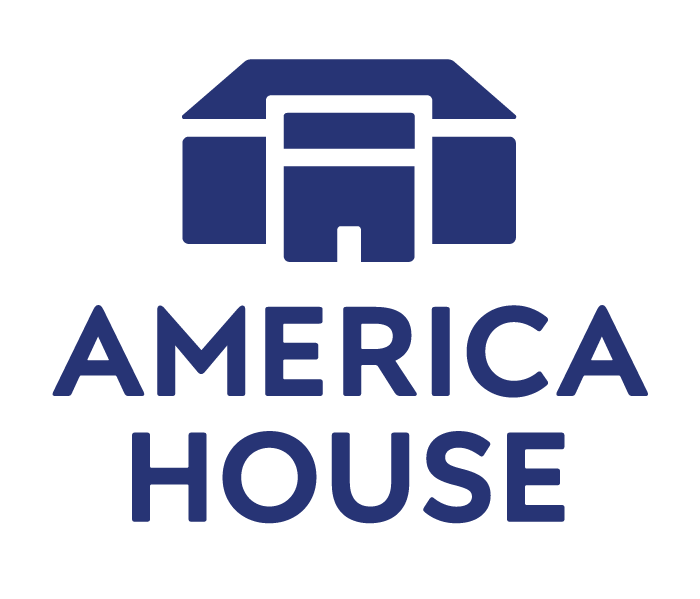America House Community Stories: Sasha
We continue to share the stories of people from our community who prove that Ukrainians are invincible. In this interview we talk to Oleksandr Hatilov, our former colleague and alumnus of the America House Leadership Program. Sasha told us about volunteering, communication with the military and what helps him to hold on.
Sasha became the head of “Kyiv Humanitarian Center” military department
When the air raid alert was ringing at the warehouse, it was very loud. Then we heard an explosion, if it was far away, we just kept sorting and packing to the sound of sirens.
How did everything start for you and what led you to volunteering?
"War has come to my life again," was my first thought on February 24. I already experienced the war in 2014 in Luhansk, and now it is all over the country. The first two weeks I could not leave the apartment, shaking emotionally and physically. Then I realized that I needed to do something, to help. My friend Lisa started volunteering, and I joined her. Almost every day from morning to evening, we were sorting medicine and delivering it around the city to be handed over to the Territorial Defence and various branches of the Armed Forces of Ukraine. That is how I joined the Kyiv Humanitarian Center. Lisa became the head of the center, and I became the head of the military department. I am responsible for all ammunition and communication with the military.
We started with the school gym and then moved to our own office, where we set up a warehouse. Initially, our ideological leader Tolya agreed that we could keep and sort out humanitarian aid in the school gym. A lot of Tolya’s acquaintances went to the front, they connected with him and shared their needs. So, through word-of-mouth more soldiers learned about us. Our priority in to provide aid in front zones. We receive the aid from Ukraine and Europe. We have designed posters in 20 languages so that people abroad can share them to donate and help.
Our acquaintance, a medical worker, helped with the sorting of medicines and explained how everything works. Now I understand what is most necessary, and I know a lot about paramedicine.
How did you cope with being at high risk when Kyiv was under the frequent shelling?
We understood that we needed to do this. The military were writing to us saying that they could pay for themselves, only asking to buy what they needed. They were physically unable to buy things, but they really needed it. That's why we did it.
When we heard the explosions in Kyiv, we tried to understand if we saw the smoke, to find out how close it was, and if necessary to go somewhere else. When the air raid alert was ringing at the warehouse, it was very loud. Then we heard an explosion, if it was far away, we just kept sorting and packing to the sound of sirens.
What moments helped you to hang in there? Was there something that impressed you?
I used to think that the military were very strict and serious people with whom it can be hard to communicate. But they turned to be exactly the opposite: when we came to them to deliver the needs, they welcomed us very warmly, hugged us.
I was talking to them in a formal way, and they asked to speak with them as I would do with friends. The soldiers were grateful that we were doing so much for them, they thanked us very much. It was very nice.
I love the moments when we take a break from sorting the aid, there is no siren and we start hearing birds sing. Then we understand that life goes on. And then the siren starts, we go back to work. Our team is very united, and it helps to hold on.
AH Community Stories is a series of interviews where we tell about our friends and their stories of bravery and resilience.




